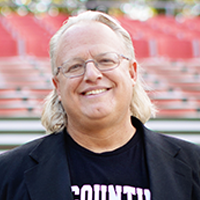We must change the conversation around pathways to CPA licensure
October 5, 2023 | Boz Bostrom, CPA

It is no secret the field of accounting has both pipeline and diversity problems. There are many actions that should be taken to address these problems, and one of those is to follow Minnesota’s lead in proposing
alternative pathways to CPA licensure.
Specifically, an individual who passes the CPA exam should have the option of either completing a college degree with 150 hours and gaining one year of experience or gaining two years of experience without any additional hours required beyond a standard 120-credit hour college degree.
Simply put, the 150-hour requirement is a barrier to entry into the accounting profession. Research done by John Barrios, an assistant professor of accounting at Washington University in St. Louis, found that the 150-hour rule reduced those taking the
CPA exam by 15%. When that barrier is reduced, more candidates will take the exam. Research done by Berry College professors Brian Meehan and E. Frank Stephenson found that elimination of the 150-hour rule (to take the exam) increased those taking the
CPA exam by 25%.
What is troubling is there is no evidence that this barrier has elevated the profession. Barrios found that those with 150 hours did not have higher CPA exam pass rates, nor did those people stay longer in public accounting or more quickly become a CPA firm partner. Meehan and Stephenson found that elimination of the 150-hour rule (to take the exam) did not impact CPA exam pass rates, suggesting that the 150-hour rule does not necessarily eliminate poorer performing candidates.
Liberalizing the 150-hour rule does not leave the profession with more poor performing candidates. Rather, it leaves us with more accountants performing at the same level of proficiency. Making this change should help the public find the accountants they need, increase competition and lower prices for consumers.
A
report issued by the Center for Audit Quality is even more striking.
In this report, 32% of business majors who considered but
did not pursue an accounting degree cited the 150-hour requirement as a major barrier, with no other barrier being higher. Alarmingly, 46% of Black and 49% of Hispanic business students who considered accounting as a major cited the 150-hour requirement as a major barrier.
I have not seen one single piece of research that supports the 150-hour rule. The AICPA has provided no evidence to support its claims that Minnesota’s efforts to offer alternative pathways are “lowering the bar” or that the 150-hour requirement has “elevated accounting from a trade to a profession.” For a profession that prides itself on evidence-based decision-making, the AICPA’s comments are quite troubling.
The only research I have seen disputing the 150-hour rule as a barrier is a study published by the Illinois Society of CPAs. However, that society has clearly indicated that their research focuses on why
accounting majors may not pursue a CPA designation, and not why
other majors may not pursue a CPA designation. Our industry’s problem is not primarily in encouraging accounting majors to become CPAs, but rather in encouraging non-accounting majors, especially those who are Black or Hispanic, to consider accounting.
What students ask
This fall, I began my 20
th year of teaching as a university accounting professor. It will be my 20
th year of helping students navigate how to earn the 150 hours needed to become a CPA. I imagine very few professors in the nation advise more students than I do. When my students ask me why they need 150 hours, all I can tell them is, “Because it’s the rule.”
When they ask if the rule provides value to the profession or to them as future CPAs, all I can tell them is what the evidence has shown: No.
Students take a hit on both the revenue and expense sections of the income statement with the requirement to have 150 college credit hours: lost wages and increased tuition and fees. When aggregated, this is tens of millions of hours and hundreds of millions of dollars.
1
Education is valuable. As a profession, we are lifelong learners. As an educator, I acknowledge that learning includes both classroom and work experience. The debate about 150 hours is not about the value of education, it is about setting practical requirements for CPA licensure that align with the demands of the profession. Flexibility in combining formal education and work experience supports the values and demands of the profession.
Looking at the issue holistically
It is not only our students we are hurting. We are hurting the public. People can’t find enough CPAs to prepare their tax returns. Small business, nonprofits and governmental agencies
can’t find enough CPAs to audit their financial statements. Those who can find CPAs are seeing their fees skyrocket due to the simple principles of supply and demand.
Should we work on various ways to promote our profession beyond offering alternative paths to licensure? Absolutely! Higher pay, more manageable busy seasons, improving our image and other ideas should all be on the table. But having those topics on the table does not mean we should ignore the significant barrier to entry that the 150-hour rule is.
I’m proud Minnesota has taken the lead and introduced
alternative pathways to licensure. I look forward to watching progress in the 2024 legislative session. I strongly encourage all other licensing jurisdictions to do the same, and I strongly encourage the AICPA and NASBA to adjust UAA model rules to allow for additional paths to licensure. We have spent way too much time debating this issue. Enough is enough. We need action now.
CPAs are essential. When I imagine a world without enough accountants to satisfy the needs of the public, I see corruption, lack of trust and financial crises. We need relevant, essential prerequisites for CPA licensure without unnecessary barriers. In a world that is changing quickly and dramatically, the profession must also adapt and change. That includes broadening the path to licensure.
1 My simple estimate, which needs refining and is for discussion purposes only, is that the nation’s 33,000 new CPAs each year require an average of 20 additional credits, which is 660,000 total credits. One credit is intended to be 40 hours of work. The result is 26.4 million extra hours per year. Applying an inexpensive rate of $300 per credit, I compute an annual cost of $198 million. My sense is the number of hours is high but the cost may be low.
Topics: Legislative & Government Affairs, Regulation, Staffing, Professional Certification, Succession, Government, Education
Boz Bostrom, CPA

Boz Bostrom is a professor of accounting and finance at the College of Saint Benedict and Saint John’s University in Minnesota. He has been a CPA since 1997. Prior to joining academia, Boz spent nine years working at Big 4 CPA firms. Boz speaks nationally on the topics of ethics and leadership and is the chair of the MNCPA board of directors for 2024-25.
Blog Posts by this author